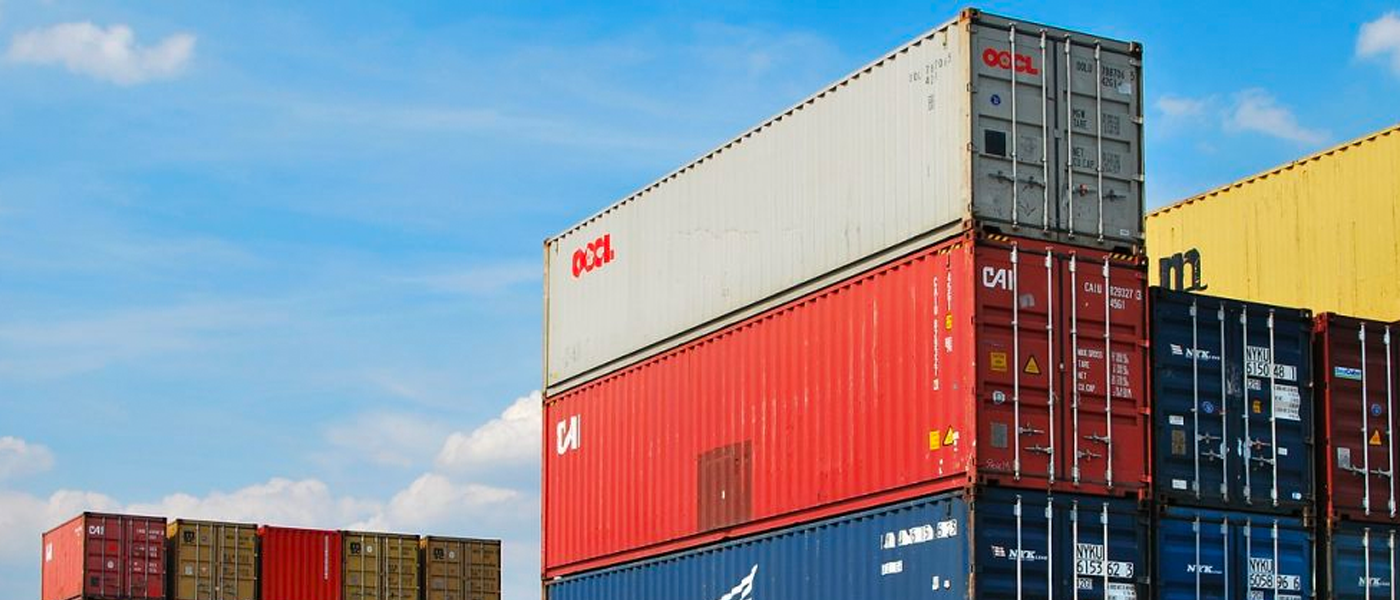
If you’re an online seller in the Philippines, you know that selling online can be a great way to earn extra income. However, as an online seller, you must comply with certain online seller tax 2024 laws to avoid legal issues and penalties. Understanding tax laws can be overwhelming, but it doesn’t have to be. In this article, we will break down the tax laws that online sellers in the Philippines need to know in a conversational and informative tone. Whether you’re just starting as an online seller or have been selling for a while, this article is for you. We’ll cover the basics of registering for taxes, the types of taxes you must pay, the tax incentives available, and common mistakes to avoid. By the end of this article, you’ll better understand the tax laws that apply to you as an online seller in the Philippines and how to comply with them. So, let’s dive in and get started!
As an online seller in the Philippines, registering for taxes is important to ensure you comply with tax laws. Registering for taxes can be intimidating, but it’s a straightforward process. In this section, we’ll explain why it’s essential to register for taxes as an online seller and the steps you need to take to register.
Registering for taxes as an online seller in the Philippines is relatively simple. Here are the steps you need to take:
Links to relevant government websites for registration:
Here are some helpful links to government websites where you can register for taxes as an online seller in the Philippines:
Remember, registering for taxes is necessary to ensure that your online business is legitimate and compliant with tax laws in the Philippines. Don’t skip this step; register as soon as possible to avoid legal issues.
As an online seller in the Philippines, you must pay various taxes, including income tax, value-added tax (VAT), and percentage tax. In this section, we’ll explain these taxes, how they work, how they are calculated, and the deadlines for filing and paying taxes for online selling.
Income tax is a tax on the income earned by individuals, corporations, partnerships, and other entities. As an online seller, you are considered a self-employed individual and must pay income tax on your online business profits.
For individuals, the income tax rates in the Philippines range from 0% to 35%, depending on your income bracket. Here are the income tax rates and brackets for 2024:
| Amount of Net Taxable Income | Rate | |
| Over | But Not Over | |
| – | P250,000 | 0% |
| P250,000 | P400,000 | 20% of the excess over P250,000 |
| P400,000 | P800,000 | P30,000 + 25% of the excess over P400,000 |
| P800,000 | P2,000,000 | P130,000 + 30% of the excess over P800,000 |
| P2,000,000 | P8,000,000 | P490,000 + 32% of the excess over P2,000,000 |
| P8,000,000 | P2,410,000 + 35% of the excess over P8,000,000 | |
To calculate your income tax, you need to subtract your allowable deductions and exemptions from your gross income. Your gross income is the total amount of money you earn from your online business, while your deductions are expenses that you can subtract from your gross income to arrive at your taxable income.
Value-added tax (VAT) is a tax on the value added to goods and services at every stage of production and distribution. As an online seller, you are required to register for VAT if your gross sales exceed PHP 3,000,000 in a 12-month period.
The standard VAT rate in the Philippines is 12%. However, certain transactions are exempt from VAT, such as the sale of agricultural and marine products, books, and medicines.
To calculate VAT, you need to multiply the VAT rate by the selling price of your goods or services. For example, if you sell a product for PHP 1,000 and the VAT rate is 12%, the VAT amount would be PHP 120.

Guide for Lazada Sellers who Ship to the Philippines
Learn how to ship to the Philippines as a Lazada seller…
Percentage tax is imposed on businesses and individuals gross sales or receipts, not VAT-registered. As an online seller, you are required to pay a percentage tax if your gross sales do not exceed PHP 3,000,000 in a 12-month period.
The percentage tax rate for online sellers is 3% of gross sales or receipts. However, certain types of sales are subject to a lower percentage tax rate, such as sales of goods or services to the government, which are subject to a 1% tax rate.
As an online seller, you are required to file and pay your taxes on time to avoid penalties. Here are the deadlines for filing and paying taxes:
Failure to file and pay taxes on time can result in penalties and interest charges. Penalties for late or non-payment may include a 25% surcharge, 20% interest per annum, and other penalties as provided by law. Therefore, filing and paying taxes on time is essential to avoid these penalties.
Understanding the types of taxes you need to pay, how they work, and the deadlines for filing and paying taxes is essential for online sellers in the Philippines. Make sure to keep track of them to save more.

Shipping to the Philippines: Guide for Shopee Sellers
Learn how to ship to the Philippines as an international Shopee seller…
The Philippine government offers tax incentives to encourage small businesses, including online sellers, to grow and contribute to the country’s economy. In this section, we’ll explain the tax incentives available for online sellers in the Philippines, how to avail of these incentives, and the eligibility criteria.
To avail of these tax incentives, you need to meet the eligibility criteria and follow the application process.
To learn more about tax incentives and how to avail of them, you can visit the following government websites:
Remember, paying tax incentives is an excellent way for online sellers in the Philippines to save money and grow their businesses. Make sure to meet the eligibility criteria and follow the application process to avail of these incentives.
While running an online business in the Philippines, knowing online sellers’ common tax mistakes is important. This section will discuss some of the most common tax mistakes online sellers make and how to avoid them.
One of the online sellers’ most common mistakes is not registering with the BIR. All businesses, whether online or offline, are required to register with the BIR within 30 days of starting operations. Failing to register can result in hefty fines and penalties.
Online sellers must declare all their income, including those earned from online marketplaces like Lazada and Shopee and social media platforms like TikTok Shop, Facebook and Instagram. Failure to report all income can lead to tax evasion charges, imprisonment, and fines.
Online sellers must keep accurate records of all their income and expenses. This includes receipts, invoices, and other financial documents. Failure to maintain correct records can result in penalties and fines.
Online sellers must file their taxes on time to avoid penalties and interest. The deadline for filing and paying taxes depends on the type of tax and the gross sales or receipts of the business. Income tax and VAT returns are filed either quarterly or annually, while percentage tax returns are filed monthly.
As this article discusses, the Philippine government offers tax incentives to encourage small businesses, including online sellers, to grow and contribute to the economy. Not availing of these incentives can result in paying more taxes than necessary.
To avoid these common tax mistakes, online sellers should keep accurate records, register with the BIR, declare all income, file taxes on time, and avail tax incentives if eligible.
Understanding the tax laws and regulations for online seller BIR in the Philippines is crucial for running a successful and compliant business. You can save money and avoid penalties and fines by avoiding common tax mistakes.

21 Top-Selling Products & Categories on Shopee Philippines 2024
Find out what sells well on Shopee Philippines through this list…
RMC Circular No. 60-2020 or the “Obligations of Persons Conducting Business Transactions Through Any Forms Of Electronic Media, and Notice to Unregistered Business”, which was signed and released on June 1, 2020, by the Philippines Bureau of Internal Revenue (BIR), is currently the strongest form of law that the Philippine government has given to any organisation or individual conducting online business.
It stipulates that anyone who earns from digital transactions on any platform must be registered with the BIR. Such businesses must have been registered with them no later than July 31, 2020. They are also encouraged to voluntarily declare their past transactions before the deadline and pay the corresponding taxes.
Those who have started operating their operations after July 31, 2020, must ensure they are registered. They must also issue the following:
Failure to complete these subjects the seller to applicable penalties under the Philippines’ Tax Code.
Entitled “Reiterating Taxpayers’ Obligations in Relation to Online Business Transactions,” RMC No. 55-2013 was considered the first real regulation the Philippine government released in direct relation to e-commerce. It even acknowledges the new terminologies used by online businesses to indicate the type of transactions they conduct, from business-to-business (B2C), business-to-consumer (B2C), and event consumer-to-consumer (C2C).
The BIR stresses that any online merchant should operate like any ordinary business, which means they must register their business at the revenue district office (RDO) where they are primarily operating. They must also accomplish BIR Form 1901 (for individuals) or 1903 (for corporations or partnerships) and pay the registration fee to any Authorized Agent Bank (AAB) located within the RDO.
The BIR will also issue a Certificate of Registration, which should reflect the tax types required of the concerned taxpayer for filing and payment. This certificate must also be displayed clearly in the business establishment.
There is an opportunity for BIR tax exemption for small business in the Philippines, especially if you’ve only started your business. Revenue Regulations No. 11-2000 highlights what is called “marginal income earner”, wherein gross revenues that do not exceed PHP 100,000 during 12 months are exempted from paying taxes.
However, once you exceed your revenues, you’ll have to pay the applicable fees.
Another way to minimize your Philippines sales tax, especially if you’re starting, is to indicate that you are a barangay micro business enterprise (BMBE), which describes a small operation.
Under Section 7 of RA 9178, or the “BMBE Incentives and Benefits Law”, such businesses–holding assets not exceeding PHP 3,000,000–are exempt from paying income tax and the Minimum Wage Law. t exceeding PHP 3,000,000–are exempt from paying income tax and the Minimum Wage Law. BMBE for online sellers, will allow sellers to get a certificate from the Department of Trade and Industry that will allow them to operate for two years without paying income tax. The certificate can also be renewed after two years.
But do note that even if your business is considered a BMBE, you are still subject to some tax-related items, such as:

Function, Fashion, Forecasting: How NuPrene grew 6X via effective demand planning powered by Locad’s tech
NuPrene has seen the business grow sixfold, owing to the advanced demand planning their team is able to do through…